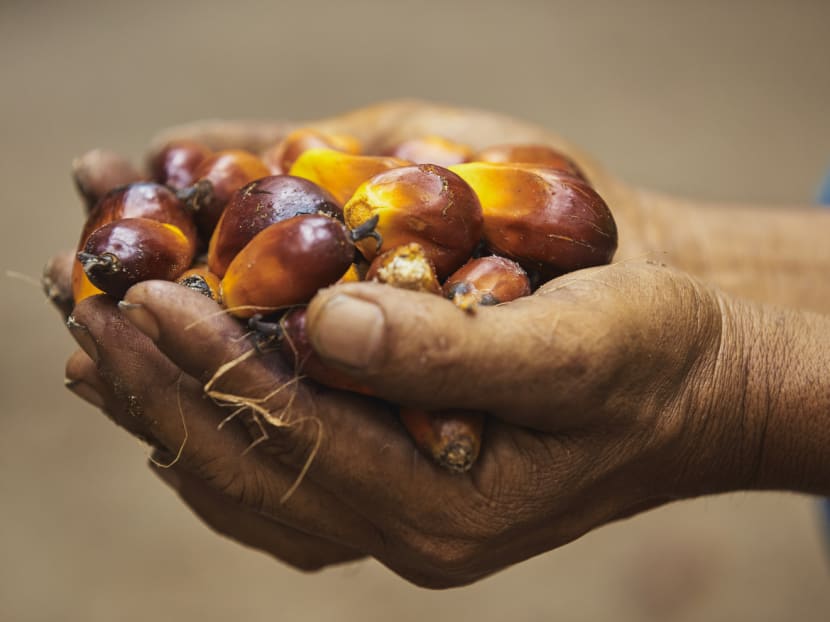Most S’pore brands not transparent about palm oil usage, says WWF
SINGAPORE — Two-thirds of homegrown Singapore brands are not transparent about their palm oil usage, and almost eight in 10 do not source for sustainable palm oil, said the World Wide Fund for Nature (WWF) yesterday.

Unsustainable palm oil production has been linked to the perennial haze problem in South-east Asia. Photo: WWF-Singapore
SINGAPORE — Two-thirds of homegrown Singapore brands are not transparent about their palm oil usage, and almost eight in 10 do not source for sustainable palm oil, said the World Wide Fund for Nature (WWF) yesterday.
A WWF study, Palm Oil Buyers’ Scorecard — Malaysia and Singapore 2017 — contacted 27 local retailers, manufacturers and food service brands, as well as 20 Malaysian firms to assess their buying and sourcing of palm oil. Unsustainable palm oil production has been linked to the perennial haze problem in South-east Asia.
Only 10 local and six Malaysian firms responded when contacted.
The level of “non-disclosure and lack of action” among brands in these two countries was higher than the global average, the WWF said.
While 30 per cent of regional brands responded to the WWF survey and only three had public commitments on palm oil use, 80 per cent of global brands responded to the survey and over 60 per cent had palm oil commitments.
The companies surveyed cited internal factors, such as capacity issues and higher costs, as obstacles in the switch to sustainable palm oil.
However, the WWF noted that the additional cost of sustainable palm oil options starts at less than S$0.01 more per litre.
There is also a perceived lack of demand for sustainable palm oil by customers in Singapore, it added.
Among the local brands, Denis Asia Pacific (Ayam Brand) and Wildlife Reserves Singapore (WRS) scored highest in the WWF scorecard. Both are already sourcing sustainable palm and oil and are involved in industry-led platforms, such as the South-east Asia Alliance for Sustainable Palm Oil. WRS, for example, uses palm oil for cooking at its food and beverage outlets.
Dr Sonja Luz, WRS’ director of conservation and research, said: “We knew the shift to using sustainable palm oil would be challenging. The process took months, but it is definitely worthwhile as all of us are convinced that this supports our cause — to protect wildlife and conserve biodiversity.”
In response to the findings, WWF Singapore has launched a campaign to show local brands that consumers care about and support sustainable palm oil, by sending emails to brands via palmoil.sg.
Through these emails, CEOs of local companies are urged to take a pledge to be transparent with their palm oil use and start taking steps to source sustainable palm oil.
WWF Singapore chief executive officer Elaine Tan said: “People want to know what goes into the products they buy and the real impact of it. Through this campaign, we hope to demonstrate to popular local brands that their customers want them to do their part in a preventable environmental problem that every person in Singapore experiences.”






